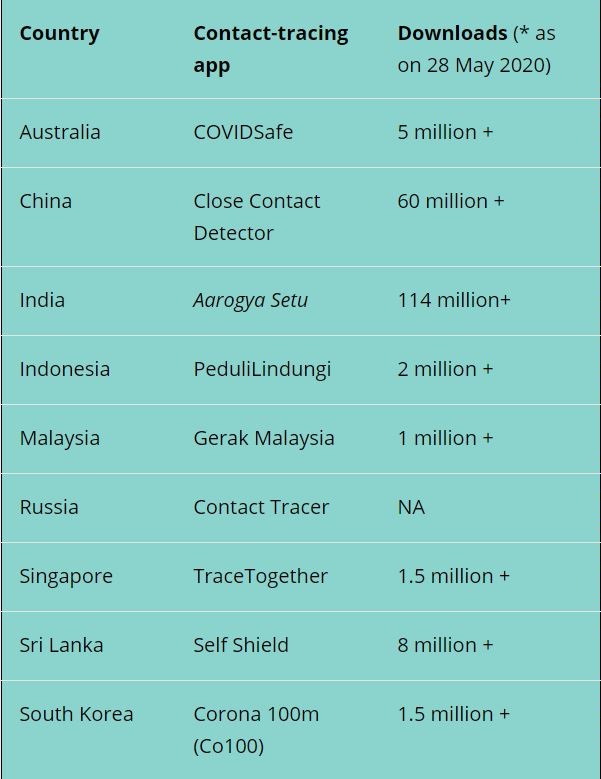
In Focus
Anshuman Tiwari
Global Head of Delivery Excellence
DXC Technology
A process-excellence lens could enable businesses to get better every day and come back faster in the game.
Globally, the last few months have been tough for most of the organizations and their employees. During the lockdown, people’s movements were limited by various governments, and many were confined to their homes. Even though the stay-at-home guidelines are no longer active, many people are still apprehensive about venturing out. Age-old habits and operating models are getting changed because of measures such as social distancing that are in place to contain the spread of the crisis.
Today, enterprises are faced with the task to navigate the business challenges in the wake of the crisis and stay put in the market marred with subdued economic sentiments.
Technology and business leaders are in search for the best ways to address issues such as sluggish customer demand, changing behavioral patterns of consumers, and raw material supply challenges.
One such way is to accelerate the adoption of digital technologies, amidst a rising focus on reimagining the business models and adopting a multi-pronged approach.
In a recent interaction with Jatinder Singh of Better World, Anshuman Tiwari, Global Head of Delivery Excellence, DXC Technology, elucidates the critical role of process excellence services in helping enterprises fast-track their digital transformation journey, improve customer experiences, and achieve better returns on investment.
Excerpts of the interview:
Better World: As economies try to get back to normal, many businesses are gasping for survival. In such a scenario, how critical is the role of process improvement to outsmart the uncertainty?
Anshuman Tiwari: Before we go into the criticality of process excellence for the industry, let’s take a step backward and examine how continuous improvement works out in our daily lives. For over six months, we have been living with stay-at-home guidelines. Many habits and operating models have been transformed because of social distancing measures that are in place to contain the spread of the crisis. We call it the new normal where businesses are often functioning by enabling every part of their process digitally.
Despite disruption during the lockdown, most of us were able to receive essential services such as groceries, milk, and fruits, mainly because of a set of processes. There may have been delays or interruptions initially, but digital services helped us collaborate and get all the necessities delivered at our doorsteps. This success is a prime example of process refinement or process excellence. Processes are nothing but a set of activities repeated multiple times for an excellent outcome. So, the process techniques are essentially developed to operate better every week and every month, leveraging whatever opportunity we get from time to time.
Processes are integral to every industry and even more to an IT industry where most customers are global and have already been exposed to robust techniques. Moreover, in the IT industry, margins are always under pressure, and end-users want to get the same thing at a cheaper cost. However, one cannot compromise with quality to reduce the cost. It would be best to discover a way to operate efficiently to save costs. Process excellence techniques such as Lean, Six Sigma, and automation come handy to enable businesses to improve cash flows without impacting the customer experience.
The current economic environment has compelled organizations to revisit their business models and include the digitization aspect in every part of their business. Enhancing processes is a critical aspect of digital transformation. Due to slow market demand and wafer-thin margins, organizations require massive efforts to strengthen their operations, improve supply chains, and reach out to their customers in new ways.
There have been growing technological advances in helping enterprises automate specific parts of their operations. An in-depth process lens can enable businesses to get better every day. It allows companies to break down and analyze processes that can be automated to deliver the same or better quality at a lesser cost. For instance, process improvement techniques can help an organization to take the robotic process automation (RPA) route to accomplish the same job with fewer people.
Across industries, efforts are being made to eliminate inadequacies and deliver exceptional services to clients.
Better World: You mentioned that process excellence is a stepping stone to digital transformation. Could you please elaborate how these two are correlated?
Anshuman Tiwari: I would like to answer this question in two parts. First, digital transformation is a fancy name. Many organizations have already stopped using the word digital transformation because they feel that every organizational shift is in some or the other way connected with digital technologies. Digital transformation is all about bringing new and advanced technologies to help you perform better, faster, and more effectively. Second, it’s not a new concept; technological change is happening all the time. For instance, fifteen to twenty years ago, we were not ready for full-scale web conferencing. Most of the collaboration tools were still emerging or were primarily limited to text chat. Internet speed was limited. Today, we are getting high-quality education and medical consulting through various web meeting and conferencing tools.
Thus, you are bringing technologies to improve a process, which is resulting in rendering the earlier process primitive. The erstwhile snail mail or even telegram services, for example, may look archaic to various instant communication services such as WhatsApp.
Anshuman Tiwari
Global Head of Delivery Excellence, DXC Technology
Anshuman is a process transformation professional with experience across multiple industries, including banking, professional services, information technology, manufacturing, and consulting. He specializes in setting up and scaling world-class operations excellence programs. In the last few years, he has also managed large RPA and digital initiatives.
Before DXC Technology, he had worked for global multinationals such as EY, HSBC, and Infosys. He is also a fellow member of American Society for Quality (ASQ), formerly the American Society for Quality Control, a knowledge-based global community of quality professionals.
Besides work, Anshuman is a fitness fanatic and has participated in several marathons across India.
Top skills
- Process improvement
- Digital transformation initiatives
- Six Sigma, Lean, automation, robotics process automation (RPA) and maturity frameworks
- Agile project management
Education
- Post Graduate Diploma in Management (MBA) in Operations Management, K.J. Somaiya Institute Of Management Studies and Research
- B.E. Industrial Engineering, Nagpur University
Now, let’s understand how a process or service excellence enables organizations to drive continuous change. It is imperative to know what we want to improve and why we wish to invest in making that improvement? Is it service delivery, resource optimization, customer experience, or all three? Any process enhancement may involve some investment or technology implementation. However, for any organization or entity, financial resources are limited. Process excellence teams help businesses determine the problem, suggest a solution, and showcase how the solution will help. Through process enhancement initiatives, organizations identify an opportunity and attain the final state of operational excellence through continuous improvement. This entire effort makes a process more effective and intelligent to deliver positive outcomes consistently, with minimal waste.
While there may be several ways to transform operations digitally, process testing can help accomplish which method is best and more suited to achieve a definitive outcome. Many transformation journeys end in suboptimal benefits, i.e., they don’t give the results they promise. That’s why you need a ‘method’ to transformation. Process excellence efforts give you a holistic outlook for your transformation efforts.
Better World: How do you engage with different business leaders for a service-excellence initiative? What are some of the best practices that you adhere to while proposing a given solution?
Anshuman Tiwari: There are two parts of the spectrum. On one end, nobody wants to improve. Some leaders wish for a status quo. They don’t desire to change or iterate a set of technological processes for getting satisfactory results. On the other extreme, some executives look to continuously change everything. Both approaches are detrimental.
If you don’t want to change and respond to the transitions happening around you, you will not grow or begin losing market share. Many erstwhile leaders failed because they did not respond to market needs or transformed their products and processes to improve their market positions. In the end, it resulted in their ruin.
On the other side of the spectrum, there are executives who wish to change everything all the time. It can be very costly and confusing for people. By the time people get to know about the new process, it would have already got changed. The probabilities are high that in such a condition, there will be a lot of unhappy employees and dissatisfied customers.
Then some people and executives who are in the middle of the spectrum. I believe that most of them are either in this category or are slowly moving toward it. There is a growing awareness around the worth of testing different processes that can impact the end customer. But it would be best if you demonstrate the inefficiency and merits of enhancing a process.
Let me give you an example. A few years ago, in an insurance process review meeting in Hong Kong, we discovered that one of our insurance-sector clients was taking one to two weeks in delivering an insurance policy. In that market, we found several other leading insurance players were taking a maximum of one week in issuing insurance policies. We examined their case and gave them an overview of how this delay could hamper their prospects. They were initially reluctant to accept, but when we explicated that their process was broken and had too much inefficiency compared to three other banks and insurance providers, they bought our idea and immediately sanctioned the process enhancement project.
So, even if your processes are working all right but failing to give you market competitive results, it’s time to evaluate. It may happen that your customers do not see it because of your past success or goodwill, but you should invest in it for long-term market advantage to scale down your error rates. Continuous improvement of a process improves not only the lives of employees but also customers. On top of that, organizations get the benefits of cost savings. You would not want to utilize the efficiency of your quality employees by giving them a task to reconcile and match data. This kind of job can be performed with the help of some software programs quite quickly.
So, in a nutshell, evaluating a process is critical to ensure that a company performs well. And all process-efficiency projects are either related to customer benefits or your people’s benefits or both.
Better World: Given the growing focus of enterprises on digital transformation, how do you see the year 2021 evolving from a process-excellence lens?
Anshuman Tiwari: Nobody knows for how long the current situation will last. The impact of the current crisis is likely to be felt for a long time, according to many experts. If there is any evidence, the last similar event (Spanish flu) occurred in 1918, which was more than a hundred years ago. It lasted for three to five years in different geographies. Of course, the situation is different in that the medical science has progressed and there are various forms of connectivity today. However, it is also true that there were no large cities back then, and population density was not that high. So, while there has been progress on some fronts, there also are counterbalancing factors that tend to neutralize those improvements. Today, we are transforming and changing fast due to this sudden disruption. Like every other practice, process excellence will also change. Priorities for large businesses will be very different for some time. Enterprises will look for rebuilding businesses. There will be a strategic focus on renewing processes in such a way that companies can come back faster.
While it is difficult to predict things, given the unprecedented nature of change, I believe there will be a reasonable investment in technologies such as RPA and internet of things (IoT). Customer centricity will continue to push organizations to innovate and develop new products and services. That’s where most of the processes will be built.
Organizations that follow a smart approach to transformation by leveraging their people, diverse processes, and technologies will be way ahead. Like any other area, process excellence will need to adapt to newer developments and focus on innovation so that as the opportunities arise, we can take advantage of those.













0 Comments